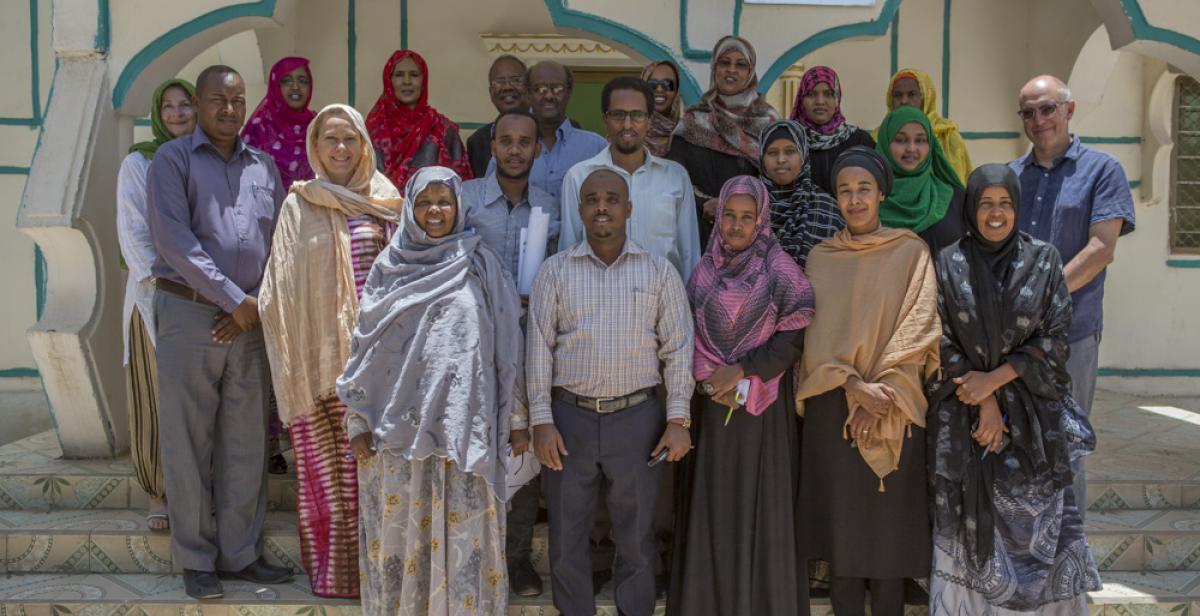Progressio has been supporting national women's organisations in Somaliland to increase women's participation in governance since 1997. Increasing women's involvement in politics in Somaliland is challenging as the nature of the country’s social institutions creates a complex web of gender-based discrimination in political, customary and religious domains.
In July 2015, Progressio started an 18-month research project into the gender dimension of political settlements, focussing on Somaliland as a case study. The research aims to understand how the gendered nature of politics, in the form of a political settlement, past and present, impacts on development outcomes, and how these are gendered. There will be a particular focus on how the gendered political settlement is being translated into policy and practice, and how this may or may not address women's rights in two areas that are of particular interest to Progressio: women's political participation and gender-based violence.
The analysis will include social and political institutions, both formal and informal, and how they are shaped by, and in turn shape, gender norms.
But, in order to understand this better, we must start at the personal level: Gender norms are linked to how men and women understand what it means to be a woman or a man in their specific cultural context, what is appropriate for them to do or not to do, what is acceptable behaviour and what isn't. This will form the basis of our research as neither politics nor development exists independent of its cultural context. For example, violence against women and their lack of political participation are often justified because women are considered to have a lower status than men.

Group work during inception workshop
Why is this cutting edge?
To date, very little research has been conducted to integrate the political settlements literature and the feminist literature on women's political participation. The mainstream political settlements literature tends to be largely gender-blind as it does not take into account women's agency in shaping political settlements or how their representation and interests are shaped by such settlements. The literature on women's political participation has mainly focussed on women's participation in formal politics and institutions without linking this to the underlying 'rules of the game' which can be informal, may happen behind the scenes, and include clientelist or masculine forms of policy making which women may find hard to access or influence. Clientelist forms of politics are based on the distribution of selective benefits to individuals or clearly defined groups in exchange for political support. They are common in many parts of the world, but may be less pronounced or institutionalised in long-established democracies.
Somaliland presents an interesting case study for expanding both theoretical and empirical understanding of the role that gender plays in shaping political settlements and their effect on gender, as the country's peace and state-building process has been locally owned and driven rather than externally manipulated by global powers as has been the case in many other countries emerging from violent conflict.
Why is this relevant to a development agency like Progressio?
Work to promote women's political participation or reducing violence against women is often not as successful as anticipated. This is because of the politics that happen 'behind the scenes' and the power relations that shape them. This work is also hampered by a lack of understanding of discriminatory social norms and how they translate into masculinities and femininities and women's and men's corresponding roles and entitlements. For example, women's increased political participation may not necessarily translate into public policies that benefit women or promote gender equity if it happens in an environment that is gender-discriminatory or gender-blind.
Change will only happen if those who fear a loss of power have incentives to change. So mapping their interests and ideas, as well as the incentives that may bring about the change we want to see is at the heart of political economy analysis. We hope that a better understanding of the socio-cultural context of Somaliland may enable us to explore ways of how those working for gender justice may be able to align their cause and/or reshape the dominant interest and ideas within the political settlement so that change towards a more equitable and peaceful society, and inclusive settlement can take place.
The research is funded by the Economic and Social Research Council/DFID and is being conducted in collaboration with the Development Planning Unit (University College London) and a local research team of long-term committed gender justice and women's rights activists in Hargeisa.
This blog was written by Malou Schueller, Governance Policy and Advocacy Officer at Progressio and Co-investigator in this research.
(Top image: Research Inception Workshop in Hargeysa, 9 August 2015; research team and key stakeholders from government and civil society)



